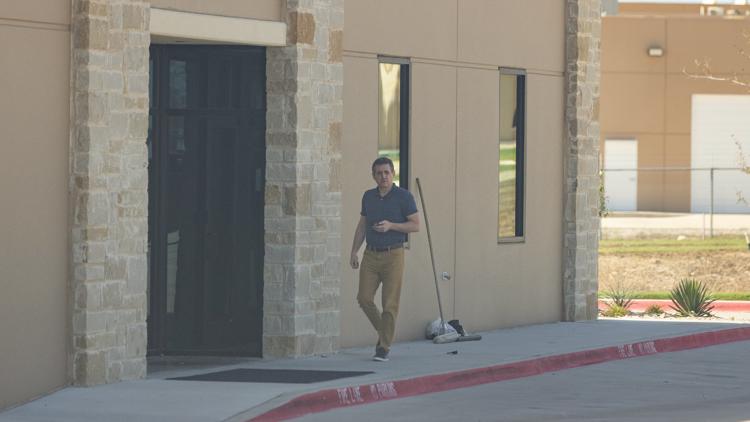AUSTIN, Texas — This story was originally published by our partners at the Texas Tribune
Two months after a prominent conservative activist and fundraiser was caught hosting white supremacist Nick Fuentes, leaders of the Republican Party of Texas have voted against barring the party from associating with known Nazi sympathizers and Holocaust deniers.
In a 32-29 vote on Saturday, members of the Texas GOP’s executive committee stripped a pro-Israel resolution of a clause that would have included the ban. In a separate move that stunned some members, roughly half of the board also tried to prevent a record of their vote from being kept.
In rejecting the proposed ban, the executive committee's majority delivered a serious blow to a faction of members that has called for the party to confront its ties to groups that have recently employed or associated with outspoken white supremacists and extremists.
In October, The Texas Tribune published photos of Fuentes, an avowed admirer of Adolf Hitler who has called for a “holy war” against Jews, entering and leaving the offices of Pale Horse Strategies, a consulting firm for far-right candidates and movements.
Pale Horse Strategies is owned by Jonathan Stickland, a former state representative and at the time the leader of a political action committee, Defend Texas Liberty, that two West Texas oil billionaires have used to fund right-wing movements, candidates and politicians in the state — including Lt. Gov. Dan Patrick and Attorney General Ken Paxton.
Matt Rinaldi, chairman of the Texas GOP, was also seen entering the Pale Horse offices while Fuentes was inside for nearly 7 hours. He denied participating, however, saying he was visiting with someone else at the time and didn’t know Fuentes was there.
Defend Texas Liberty has not publicly commented on the scandal, save for a two-sentence statement condemning those who've tried to connect the PAC to Fuentes’ “incendiary” views. Nor has the group clarified Stickland's current role at Defend Texas Liberty, which quietly updated its website in October to reflect that he is no longer its president. Tim Dunn, one of the two West Texas oil billionaires who primarily fund Defend Texas Liberty, confirmed the meeting between Fuentes and Stickland and called it a “serious blunder,” according to a statement from Patrick.
In response to the scandal — as well as subsequent reporting from the Tribune that detailed other links between Defend Texas Liberty and white supremacists — nearly half of the Texas GOP’s executive committee had called for the party to cut ties with Defend Texas Liberty and its auxiliary groups until Stickland was removed from any position of power, and a full explanation for the Fuentes meeting was given.
The proposed demands were significantly watered down ahead of the party’s quarterly meeting this weekend. Rather than calling for a break from Defend Texas Liberty, the faction proposed general language that would have barred associations with individuals or groups “known to espouse or tolerate antisemitism, pro-Nazi sympathies or Holocaust denial.”
But even that general statement was too much for the majority of the executive committee. In at-times tense debate on Saturday, members argued that words like “tolerate” or “antisemitism” were too vague or subjective. The ban, some argued, was akin to “Marxist” and “leftist” tactics, and would create guilt by association that could be problematic for the party, its leaders and candidates.
“It could put you on a slippery slope,” said committee member Dan Tully.
Rinaldi abstained from voting on the ban, but briefly argued that antisemitism is not a serious problem on the right before questioning what it would mean to "tolerate" those who espouse it. "I don't see any antisemitic, pro-Nazi or Holocaust denial movement on the right that has any significant traction whatsoever," he said.
Supporters of the ban disagreed. They noted that the language was already a compromise, didn’t specifically name any group or individual and would lend credence to resolutions in which the Texas GOP has generally condemned antisemitism and restated its support for Israel.
“To take it out sends a very disturbing message,” said Rolando Garcia, a Houston-based committee member who drafted the language. “We’re not specifying any individual or association. This is simply a statement of principle.”
Other committee members questioned how their colleagues could find words like “antisemitism” too vague, despite frequently lobbing it and other terms at their political opponents.
“I just don’t understand how people who routinely refer to others as leftists, liberals, communists, socialists and RINOs (‘Republicans in Name Only’) don’t have the discernment to define what a Nazi is,” committee member Morgan Cisneros Graham told the Tribune after the vote.



